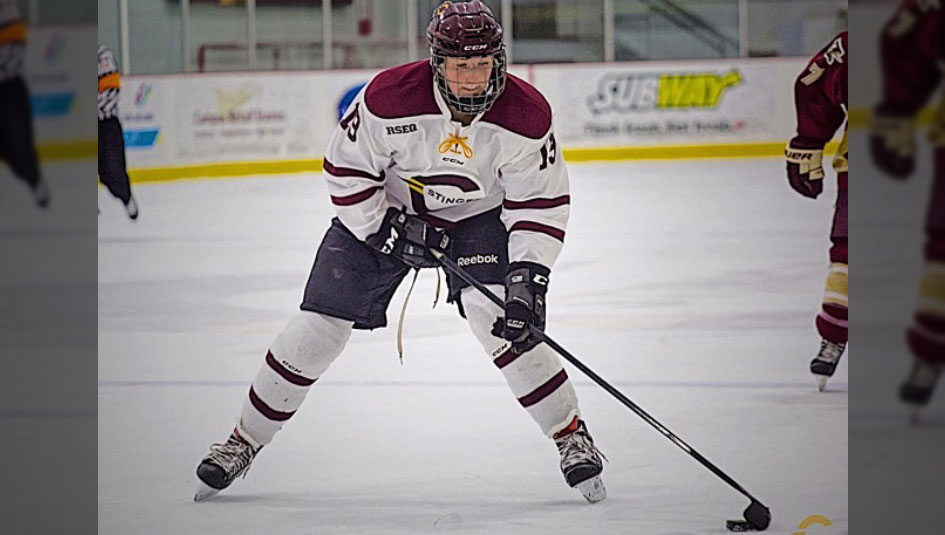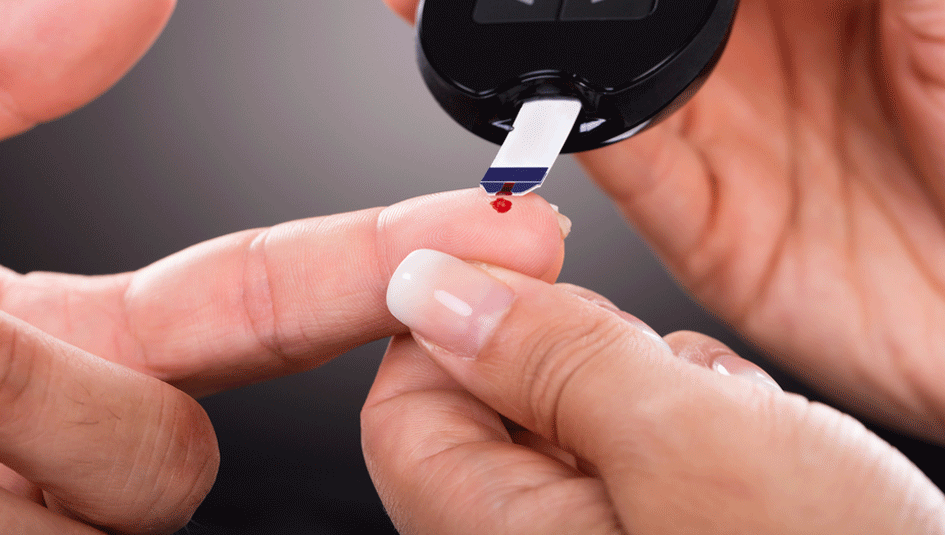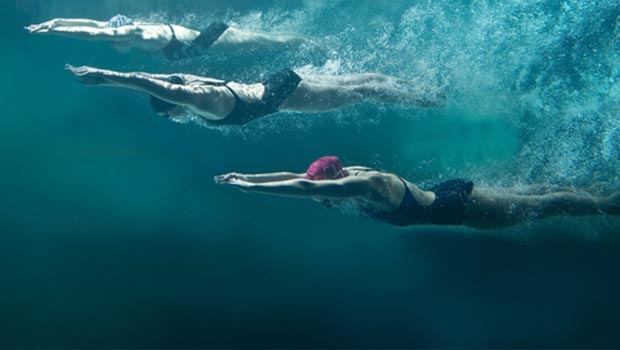Trying to Stay on the Ice with Type 1 Diabetes

At 11 years old, I was diagnosed with Type 1 Diabetes in the middle of hockey tryouts. With the diagnosis, I finally understood why I could barely skate down the ice without getting tired and why I was always so thirsty. After starting insulin therapy, I was happy to get back on the ice. I had to learn how exercise affects my blood sugar and how to time my meals and snacks perfectly. I also had to deal with some ignorant coaches, parents, and teammates who treated me differently or thought I was making excuses. Managing my diabetes became a physical and emotional full-time job, and sometimes I’ve wanted to quit.
Here’s an example of a recent frustrating experience:
At lunch my blood glucose was over 20 mmol/L (360 mg/dL). An hour later, it was over 30 mmol/L (550 mg/dL). I checked my pump’s bolus history to verify I had given enough insulin to correct my blood glucose and account for my carbs from lunch. I was running through the troubleshooting list and beginning to panic when I finally discovered the problem – the catheter was sticking out of the infusion set. I had not been receiving any insulin all day. This had never happened to me before. I was feeling sick and frustrated, and didn’t have much time before hockey practice. I gave myself a dose of insulin to correct my blood glucose, checked for ketones, and fixed my site.
I made it to practice on time, feeling relieved that the issue was resolved. As I stepped on the ice, my coach ordered me to leave. My teammates knew I was struggling earlier and had warned her. My coach decided she knew my body and my disease better than I did, and banned me from the ice. I did everything right to take care of myself and manage my sugar to be able to practice and it still wasn’t enough. Someone was preventing me from participating in the sport I love because of their ignorance about my disease. I felt a loss of autonomy. I wanted to yell, “I hate you. I hate this. I hate diabetes.” Instead I just left the rink in tears.
There’s a saying that when you’re on the ice, nothing else matters, but for me diabetes always matters. Diabetes is my life and I can’t turn it off for hockey. When I get dressed, I have to be careful so my hockey equipment doesn’t rip out my CGM or infusion set. When I’m on the ice, I have to ask myself if I am feeling tired because I’m tired or because my blood sugar is high. To rid myself of any doubts, I test before, after, and between periods of a game. I keep snacks in my locker and Gatorade behind the bench in case of a hypoglycemic event.
What happens when a Type 1 athlete goes low in the middle of a game? Do you tell your coach you can’t go back on and risk being benched the rest of the game? Maybe you chug your Gatorade but can’t wait the 15 minutes to get back up before you have to hop on for your next shift. I admit that I keep my lows to myself rather than risk being taken out of the game. I risk slipping into a coma so that I won’t be treated any differently than my teammates. I continue to play to prove that I am not limited by this disease and that I can be as good as my non-diabetic teammates. It’s a choice I make, but not one I want to make.
Do you have an idea you would like to write about for Insulin Nation? Send your pitch to submissions@insulinnation.com.
Thanks for reading this Insulin Nation article. Want more Type 1 news? Subscribe here.
Have Type 2 diabetes or know someone who does? Try Type 2 Nation, our sister publication.






